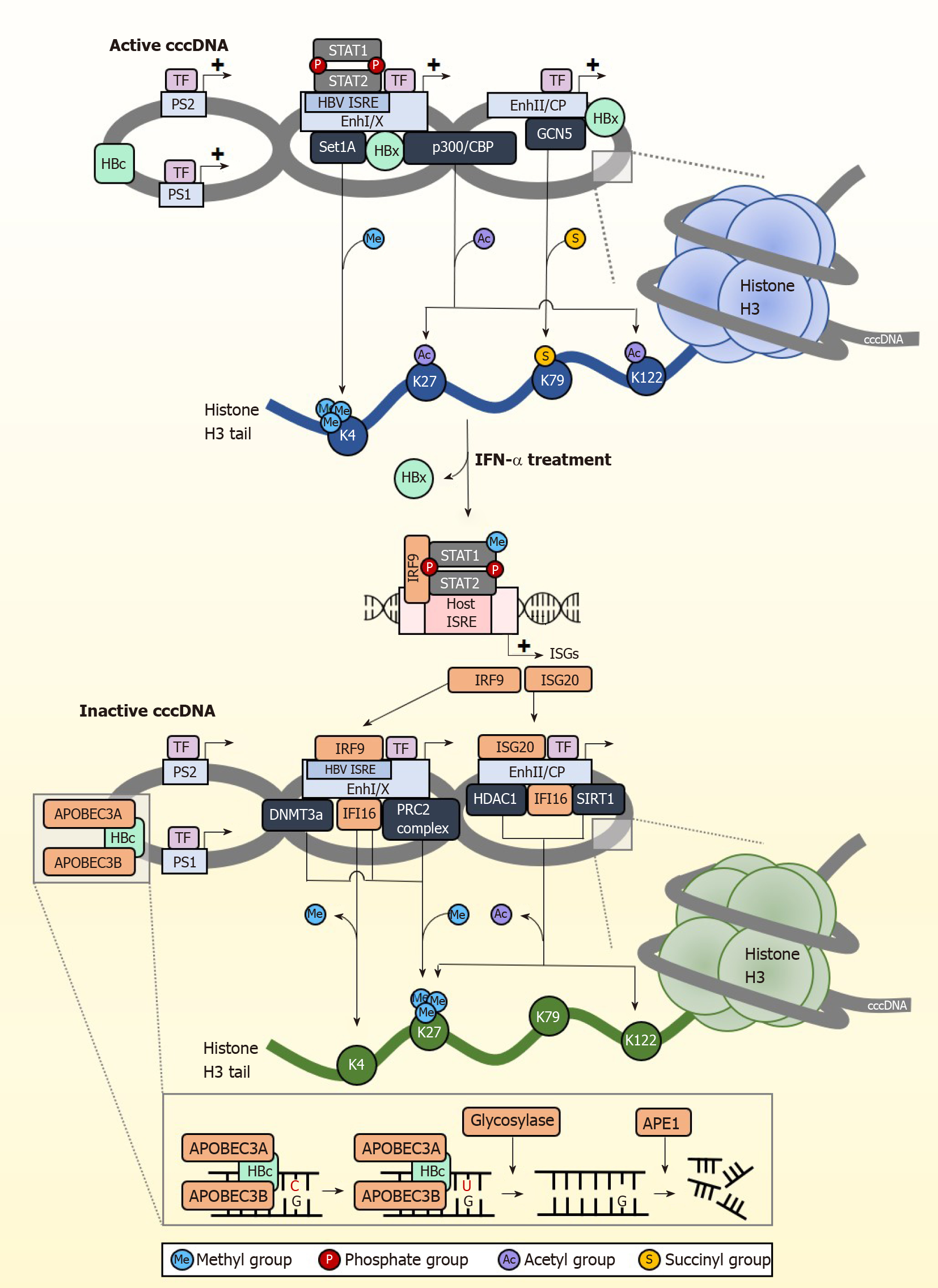Copyright
©The Author(s) 2021.
World J Gastroenterol. Apr 14, 2021; 27(14): 1369-1391
Published online Apr 14, 2021. doi: 10.3748/wjg.v27.i14.1369
Published online Apr 14, 2021. doi: 10.3748/wjg.v27.i14.1369
Figure 2 Interferon treatment silences covalently closed circular DNA transcription and recruits APOBECs to actively degrade covalently closed circular DNA.
Covalently closed circular DNA (cccDNA) exists as an episomal mini chromosome that is epigenetically modified to support active transcription. Interferon (IFN)-α treatment results in the recruitment of histone modifying complexes that remove activating transcription post-translational modifications (PTMs), and add repressive PTMs that silence cccDNA function. These complexes can be recruited by IFN-stimulated genes (ISGs) such as IFI16. ISGs may also bind directly to cccDNA to repress transcription. Other ISGs such as APOBECs induced by IFN signalling are also recruited by HBc, generating AP sites which lead to cccDNA degradation. HBV: Hepatitis B virus; IFN: Interferon; IRF: Interferon regulatory factor; JAK: Activate janus kinase; STAT: Signal transducers and activators of transcription; ISGs: Interferon-stimulated genes; ISRE: Interferon-stimulated response elements; cccDNA: Covalently closed circular DNA.
- Citation: Goh ZY, Ren EC, Ko HL. Intracellular interferon signalling pathways as potential regulators of covalently closed circular DNA in the treatment of chronic hepatitis B. World J Gastroenterol 2021; 27(14): 1369-1391
- URL: https://www.wjgnet.com/1007-9327/full/v27/i14/1369.htm
- DOI: https://dx.doi.org/10.3748/wjg.v27.i14.1369









